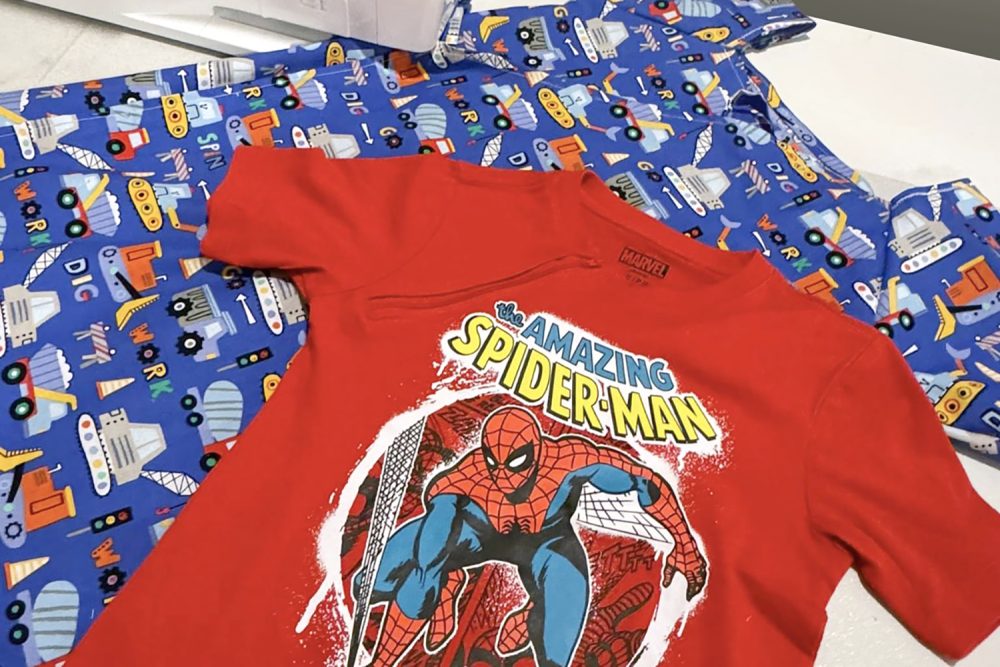
Giuliana Demma Photo courtesy of the Demma family
IN 2017, Giuliana Demma’s 10-month-old cousin, Giada, was diagnosed with brain cancer. Giuliana, then 7, couldn’t visit Giada in the hospital, but family members shared a photo of her. The image of her cousin in a drab, oversized hospital gown stayed with Giuliana, even years after Giada completed treatment. “It was a really ugly greenish color, and it was really, really big on her,” she recalls.
 Children receiving cancer treatment often spend days at a time in the hospital. To provide them with a fun activity to help pass the time, Giuliana Demma’s nonprofit makes small pillows with fun designs. They then distribute these pillows with washable markers to children receiving cancer treatment, who can color in the pillow’s design.
Children receiving cancer treatment often spend days at a time in the hospital. To provide them with a fun activity to help pass the time, Giuliana Demma’s nonprofit makes small pillows with fun designs. They then distribute these pillows with washable markers to children receiving cancer treatment, who can color in the pillow’s design.
In 2021, Giuliana took a sewing class at summer camp, and she decided to use her new skill to improve the standard-issue hospital gown. She used flamingo-patterned fabric to make a gown for a young girl her cousin had befriended through the local cancer community. At age 11, Giuliana started a nonprofit called G’s Giving Gowns that designs fun and colorful gowns sized to fit children with cancer.
Giuliana, now 14, has recruited a crew of sewers—consisting of her 11-year-old sister, Audrina; friends; local community members; and volunteers from across the country. Each gown takes 30 to 45 minutes to complete, which includes cutting the fabric and sewing the finished product. Children with cancer can request a free gown via her website. The ninth grader from Freehold, New Jersey, also makes gowns for hospitals to distribute to children receiving treatment and for cancer-focused nonprofits, which include them in care packages. Through those partnerships, more than 2,000 of Giuliana’s gowns have been delivered to pediatric cancer patients in 41 states and six additional countries.
Modified T-shirts provide easy access to ports for people receiving chemotherapy.

Giuliana Demma, 14, sews zippers into T-shirts for people receiving chemotherapy. Photo courtesy of the Demma family
When receiving chemotherapy, many children diagnosed with cancer require a port, a device that is implanted in the upper chest and provides access to a vein. Regular clothing typically covers the port, so Giuliana Demma modifies T-shirts to add a zipper from the neckline down to an armpit, which allows easy access to the port.
Children say their colorful gowns offer a distraction from treatment and a moment of joy, according to Giuliana. “It can help brighten their stay when they’re in the hospital and also make them feel more confident and comfortable,” she says. “It seems like something small, but really it makes a big impact in their lives.”




